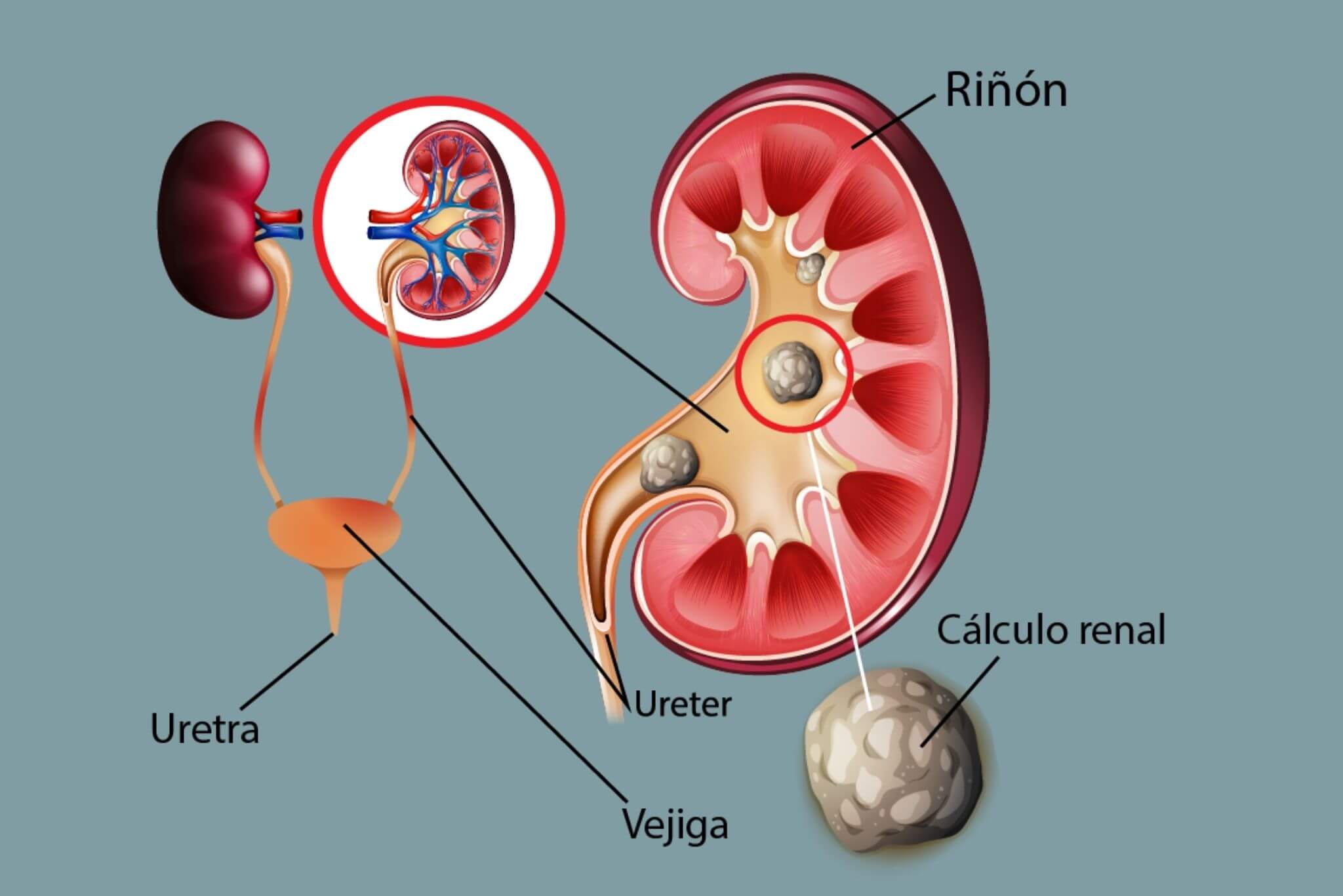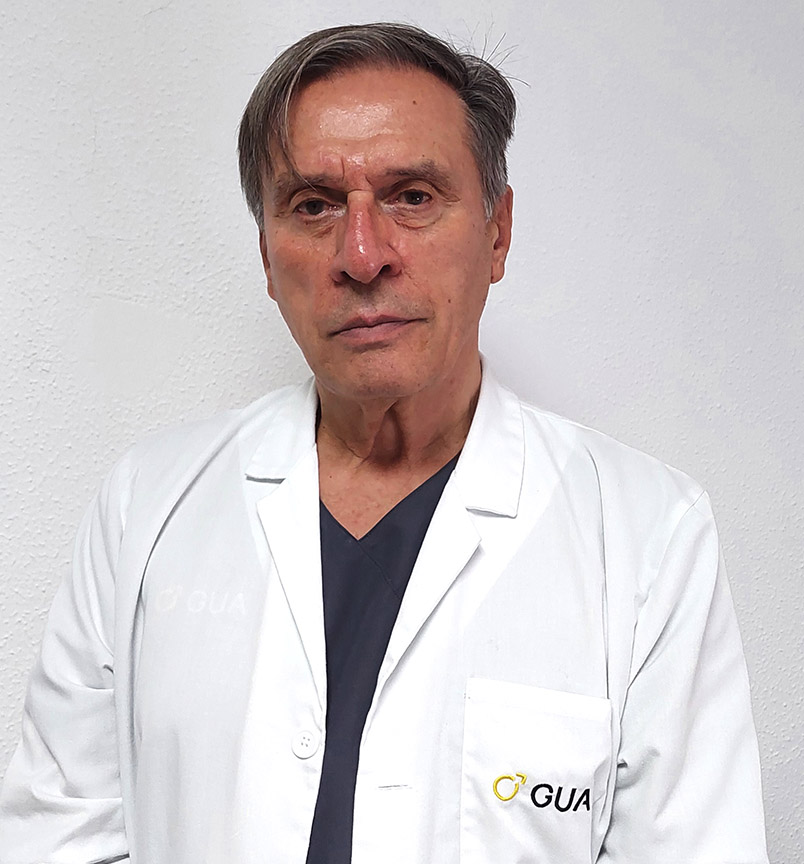
Renal lithiasis - Kidney stones
A kidney stone forms when minerals and salts in the urine crystallise and precipitate in the kidney. There are 7 different types of stones and some of them can be caused by infection of the urine or kidney.
Among the many causes of kidney stones are diet, lack of water intake, drinking carbonated beverages, excess body weight, some medical conditions, and certain supplements and medications. These can affect any part of the urinary tract, from the kidneys to the bladder.
The appearance of kidney stones is very common in our speciality. It is a very painful condition. It is a chronic disease, which usually involves a genetic predisposition.
What treatments are available to break up kidney stones?
Many of the stones can be expelled naturally without the need for surgery, only with medication. However, strict control is necessary during this time because if they are not removed in time, they can lead to serious infections or loss of kidney function.
The treatments are different depending on the location of the stone, its size and hardness. Our specialists in this type of pathology will assess your situation and the ideal technique for each case.
When the stone is not removed, there are two types of treatment:
- Extracorporeal shock waves.
- Surgery.
What techniques do we use at GUA to treat stones that do not pass naturally?
Open surgery, which used to be very common in the past, was discontinued in the last decade of the last century. The technique performed in our centre is the:
- Digital flexible ureterorenoscopyThis technique is used for stones smaller than 2 cm. It is a minimally invasive surgery where there is no need for the patient to be injured. The stone is accessed through the urethra, the orifice through which we urinate, and thanks to the latest generation of flexible digital instruments, we can reach any point of the urinary tract up to the kidney. Once we locate the stone, we pulverise it with laser energy. Patients can go home the same day without pain.
- Percutaneous nephrolithotomyThis technique is indicated for large kidney stones: more than 2 cm. We access through an orifice of approximately 1 cm through a flank and from there we access the inside of the kidney to break the stone directly with laser energy. After the surgery, the patient must stay in hospital for one day.
Is there a preventive treatment for stones?
The occurrence of stones can be prevented. To do so, we carry out:
- Crystallographic study: to determine the chemical composition of the urinary stone. 24-hour urinalysis and specific blood tests for kidney stones.
- Study of the anatomy of the urinary system.
- Metabolic study.
With these data we can find out if the cause of the stone is an undiagnosed kidney disease or a disease of the body itself, know what diet the patient should follow and be able to design a specific treatment plan for that type of stone.
Generally speaking, it is advisable to eat a low-salt diet and drink enough water. In the Canary Islands, two and a half litres of water a day is recommended. These are the two best preventive measures available.
What is renal colic?
It is a very sharp, intense pain that is sometimes accompanied by nausea, vomiting and bleeding when urinating. Nephritic colic occurs when a kidney stone moves down the ureter on its way to the bladder. It obstructs the outflow of urine through the urinary tract with a consequent increase in pressure, causing colicky pain.
When the kidney is obstructed, it cannot perform its function of filtering urine and can become infected and lead to sepsis, which is a very serious infection, and may even stop functioning and lose its function permanently.
Peyronie's disease Why does it occur?
The disease is caused by scarring and fibrosis in one area of the penis which creates a hard plaque. This scarring creates shortening of the penile tissues and deviation by stretching one corpus cavernosum more than the other. The penis is always curved to the side of the problem.
Our specialists
Don't let urological concerns get to you. Schedule an appointment with our expert urology team for accurate diagnosis and treatment.







